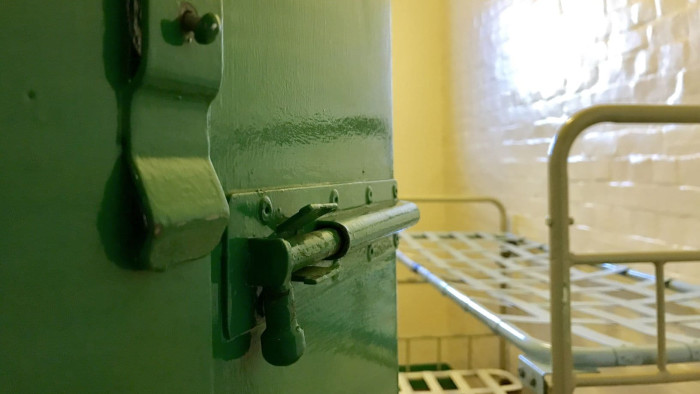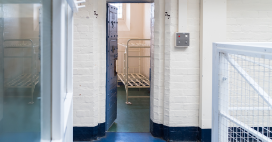
On 15 October 2016, a group of young people between 19 and 24 years were in a bar in the town of Alsasua in Navarre, Spain, when a fight sparked with two men, who it transpired were off-duty agents of the Guardia Civil. In the clash that followed, one of the civil guards suffered a broken ankle. Two youths were immediately arrested and brought before the investigating Judge at the Provincial Court of Navarre, and accused of assault. They were subsequently granted conditional release.
Some days after, the Association of Victims of Terrorism filed a complaint before the National Court (a centralised court of exception with exclusive competence over terrorism crimes). They claimed that the facts amounted to terrorism offences and hate crimes. Thereafter, the National Court took over jurisdiction of the case, despite the courts in Navarre not giving any indication that they considered the offences to be terrorism-related.
For the prosecutor, this was not a normal bar brawl. In his indictment, he argued a terror angle from the fact that some of the youths were allegedly members of a non-violent social movement called “Alde Hemendik” (‘Get out of here’) that advocates for the removal from Navarre of the state’s police forces (Guardia Civil and Policía Nacional). This was also one of the original claims of the terrorist group, ETA, which has led the prosecutor to draw a link between the two groups. However, the ties between the youths and ETA have been questioned by the defence lawyers, the Provincial Court and the Parliament of Navarre as well as an extensive group of jurists and professors from all over Spain. Furthermore, in March 2017, 74 members of the Spanish Parliament and 14 members of the Senate signed a declaration requesting that these events not be defined as terrorist.
Within a month from the fight, and before the formal prosecution’s indictment was issued, a leading Spanish newspaper published details of the ongoing proceedings and identified twelve of the involved people, including two minors, by name and ID card number. Several youths actually found out about their involvement in the case through the leaked information. The high profile nature of the case has led some to question their presumption of innocence and with it their right to a fair trial.
On 14 November 2016, the Judge of the National Court ordered the arrest of ten youths for questioning, and imposed pre-trial detention upon three of them. They are currently detained in various prison facilities in Madrid under a special supervision and control regime. The judge has repeatedly rejected any requests for release, ruling that in view of the severity of the crime there is a high probability that the accused will abscond or reoffend. They are held 400 km away from their homes and all attempts to have the accused transferred to a facility closer to their hometown, as allowed by Spanish penitentiary law, has been rejected. Despite the fact that, as argued by the defence, the youths turned themselves in to the police, the judge continues to find a risk of absconding by relying exclusively on the seriousness of the alleged crime and the severity of the penalties faced by the accused. The judge has provided identical reasoning for all three detainees without addressing the specific personal circumstances for each of the accused.
In his indictment, the prosecutor requested penalties amounting to 62 years of imprisonment for one of the accused, 50 years for seven of them, and 12 years for the young women. In total, the group is facing 375 years of imprisonment for crimes of terrorism threats and offences of terrorism resulting in injury. This is alarming and appears hugely disproportionate considering that the same facts would carry a maximum penalty of 5 years of imprisonment had they not been qualified as terrorism-related offences.
In October 2017, the National Court issued a decision regarding the demand of evidence made by each of the parties ahead of the trial, which is due to start in April 2018. In this decision, the judge failed to admit the majority of the evidence proposed by the defence. This decision is very concerning given the severity of the penalties faced by the accused, and could potentially entail a threat to the right of a defence with all legal guarantees.
Spain has been frequently criticised for the broad scope of the definition of “terrorism” contained in its Penal Code. In 2015, a group of United Nations Special Rapporteurs highlighted that such a broad or ambiguous definition could “pave the way for a disproportionate or discretionary enforcement of the law by authorities” and that it “could criminalise behaviours that would not otherwise constitute terrorism and could result in disproportionate restrictions on the exercise of freedom of expression, amongst other limitations.”
In 2016, Fair Trials published a report on the practice of pre-trial detention in Europe, which identified a number of issues regarding pre-trial detention in Spain such as the over-reliance by judges on arguments put forward by the prosecution at the expense of those of the defence; abstract, unclear reasoning in judges’ decisions, without due attention to specific circumstances; insufficient use of alternative measures to detention; and ineffective and irregular judicial reviews of pre-trial detention decisions.


